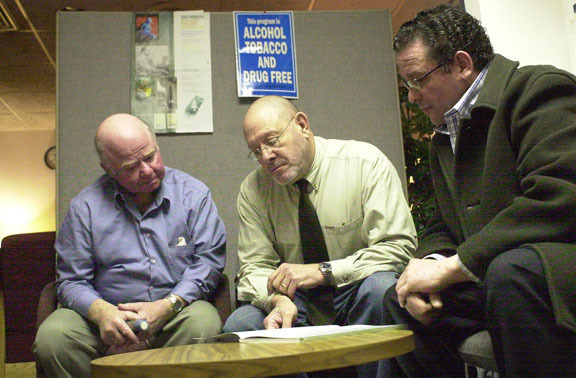Kicking a heroin habit: The road back from hell
Part 2 in a series.
“I died on my kitchen floor,” said Joe, a recovering heroin addict who overdosed trying to rid himself of the 50-bag-a-day habit he had developed. “I woke up in the intensive care unit with my family around me crying.”
The 24-year-old Massapequa man said the mixture of heroin and methadone he had injected the day his father found him lying on the floor — Nov. 28, 2008 — caused three seizures.
The experience of nearly losing his life and of seeing his family crying at his hospital bed was the worst feeling he ever had, he said -- one he can remember like it was yesterday. He knew he was ruining his life and his family. But that low point was also a turning point for Joe, an aspiring scholar athlete who lost everything to his addiction. It was the day he started on his difficult and continuing road to recovery.
Despite his attempts to stay longer, after two days in Nassau University Medical Center, Joe was discharged. This wasn’t the first time he had tried to kick the habit and was released prematurely during an attempt to detoxify. A year before, after Joe had revealed his addiction to his family, he went into detox for a short treatment, and emerged sicker than when he went in.
The Nassau County Police Department has labeled heroin addiction, particularly among young people from 16 to 29, an epidemic across the South Shore.
The Herald interviewed recovering addicts Joe and Tom (not their real names) on a recent Friday in a small conference room in the basement of a red brick medical office building at 30 Hempstead Ave., the home of Confide Counseling and Consultation Center, an outpatient drug and alcohol counseling center that offers education for family members and significant others.
Insurance and Medicaid often pay for a short course of treatment for addicts that many in the drug counseling field say is far too brief. According to Art Rosenthal, Confide's executive director, many insurance companies won’t even pay for detoxification until an addict has experienced several failures at outpatient clinics.






